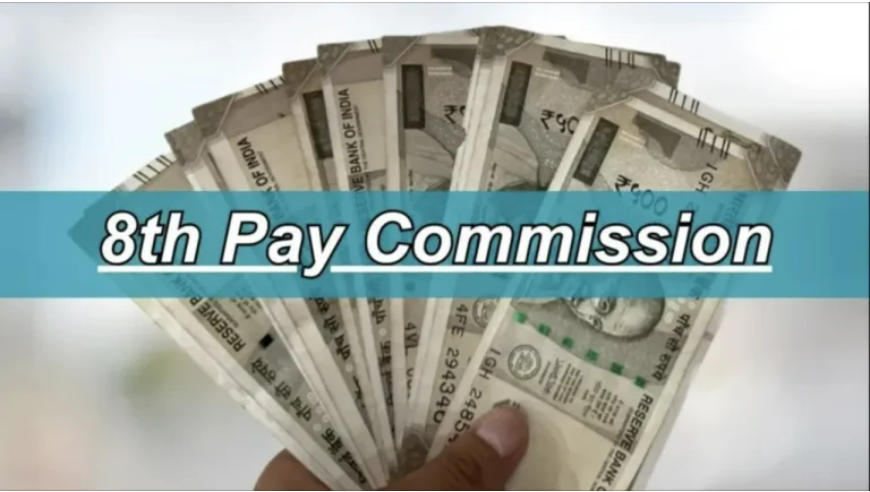Government Announces 8th Central Pay Commission: A Comprehensive Look at Past and Future

New Delhi, January 16, 2025 - In a significant move for central government employees and pensioners, the Union Cabinet has greenlit the formation of the 8th Central Pay Commission, set to overhaul the salary structure starting January 1, 2026. Here's an in-depth look at the history of pay commissions in India, their impact, and what might be expected from the upcoming 8th Pay Commission.
History of Pay Commissions in India:
- 1st Central Pay Commission (1946):
- Chairman: Srinivasa Sastri
- Outcome: Established a basic structure for government employee pay, raising the minimum wage from ₹55 to ₹70.
- 2nd Central Pay Commission (1957-1959):
- Chairman: Jaganath Das
- Outcome: Recommended a 14.2% increase in salaries, reflecting post-independence economic adjustments.
- 3rd Central Pay Commission (1972-1973):
- Chairman: Raghubar Dayal
- Outcome: Aimed at aligning salaries with the rising cost of living, raising the minimum wage to ₹185.
- 4th Central Pay Commission (1983-1986):
- Chairman: P.N. Singhal
- Outcome: Notable for introducing the concept of pay scales, with the minimum wage set at ₹750.
- 5th Central Pay Commission (1994-1997):
- Chairman: Justice S. Ratnavel Pandian
- Outcome: Introduced the idea of a performance-related pay system, with the minimum wage bumped up to ₹2,550.
- 6th Central Pay Commission (2006):
- Chairman: Justice B.N. Srikrishna
- Outcome: Often celebrated as one of the most generous, with a 54% salary increase, setting the minimum wage at ₹7,000. This commission significantly impacted government finances and contributed to inflation.
- 7th Central Pay Commission (2014-2016):
- Chairman: Justice A.K. Mathur
- Outcome: Recommended a 14.3% increase in pay, with the minimum wage set at ₹18,000. It introduced a new pay matrix to reduce disparities in pay scales.
Each of these commissions has been pivotal in adapting government employee compensation to the socio-economic changes of their time, aiming for fairness, transparency, and motivation in public service.
Expectations from the 8th Pay Commission:
- Salary Increase: Based on current discussions and economic analyses, the 8th Pay Commission is expected to propose a salary hike of around 18% to 22%. This prediction comes from various sources, including social media sentiment and expert analyses, which suggest a need for adjustment due to inflation since the last commission.
- Pension Revisions: There's anticipation of a corresponding increase in pensions, which could see up to a 30% rise, offering better financial security for retirees.
- Fitment Factor: A key component of pay scale revisions, the fitment factor might see an increase from 2.57 to potentially between 2.86 and 3.00, significantly impacting the basic salary calculation for employees across all levels.
- Pay Matrix Simplification: The commission is likely to focus on simplifying the pay matrix further, aiming for greater transparency and uniformity in salary structures across different government departments.
- Performance-Based Incentives: There's discussion about introducing or enhancing performance-linked incentives to boost productivity and efficiency within government services.
- Economic Impact: While employees welcome the raise, there's concern about the fiscal implications, given India's economic landscape. Government spending on salaries could lead to increased tax revenues but also raise questions about fiscal discipline in an election year.
The formation of the 8th Pay Commission is not just about revising pay scales but also about recalibrating the government's approach to employee welfare, economic policy, and public service motivation. As discussions unfold, the commission's recommendations will be closely watched by millions, influencing not just individual livelihoods but also the broader economic policy framework of the nation.
